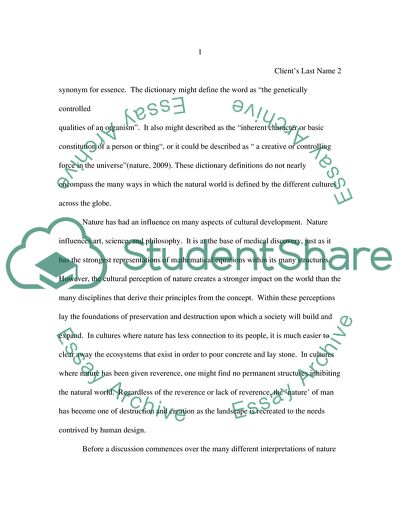Cite this document
(Cultural Interpretations of Nature and the Effect on the Environment Essay, n.d.)
Cultural Interpretations of Nature and the Effect on the Environment Essay. Retrieved from https://studentshare.org/environmental-studies/1719874-discuss-with-examples-how-different-cultural-ideas-about-nature-might-lead-to-differing-or-conflicting-environmental-management-preferences-and-decisions
Cultural Interpretations of Nature and the Effect on the Environment Essay. Retrieved from https://studentshare.org/environmental-studies/1719874-discuss-with-examples-how-different-cultural-ideas-about-nature-might-lead-to-differing-or-conflicting-environmental-management-preferences-and-decisions
(Cultural Interpretations of Nature and the Effect on the Environment Essay)
Cultural Interpretations of Nature and the Effect on the Environment Essay. https://studentshare.org/environmental-studies/1719874-discuss-with-examples-how-different-cultural-ideas-about-nature-might-lead-to-differing-or-conflicting-environmental-management-preferences-and-decisions.
Cultural Interpretations of Nature and the Effect on the Environment Essay. https://studentshare.org/environmental-studies/1719874-discuss-with-examples-how-different-cultural-ideas-about-nature-might-lead-to-differing-or-conflicting-environmental-management-preferences-and-decisions.
“Cultural Interpretations of Nature and the Effect on the Environment Essay”. https://studentshare.org/environmental-studies/1719874-discuss-with-examples-how-different-cultural-ideas-about-nature-might-lead-to-differing-or-conflicting-environmental-management-preferences-and-decisions.


